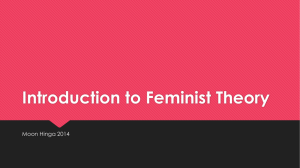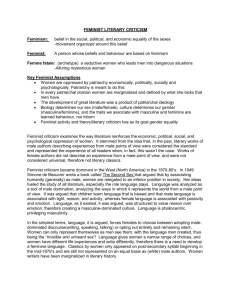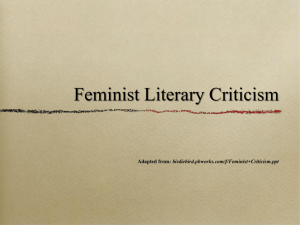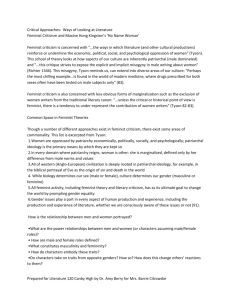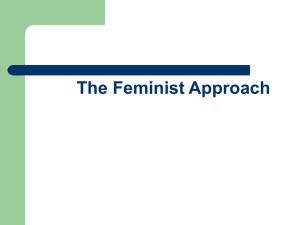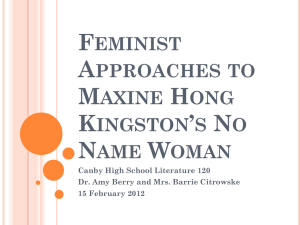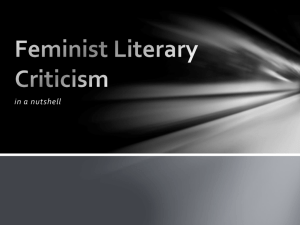Intro to Feminist Theory
advertisement
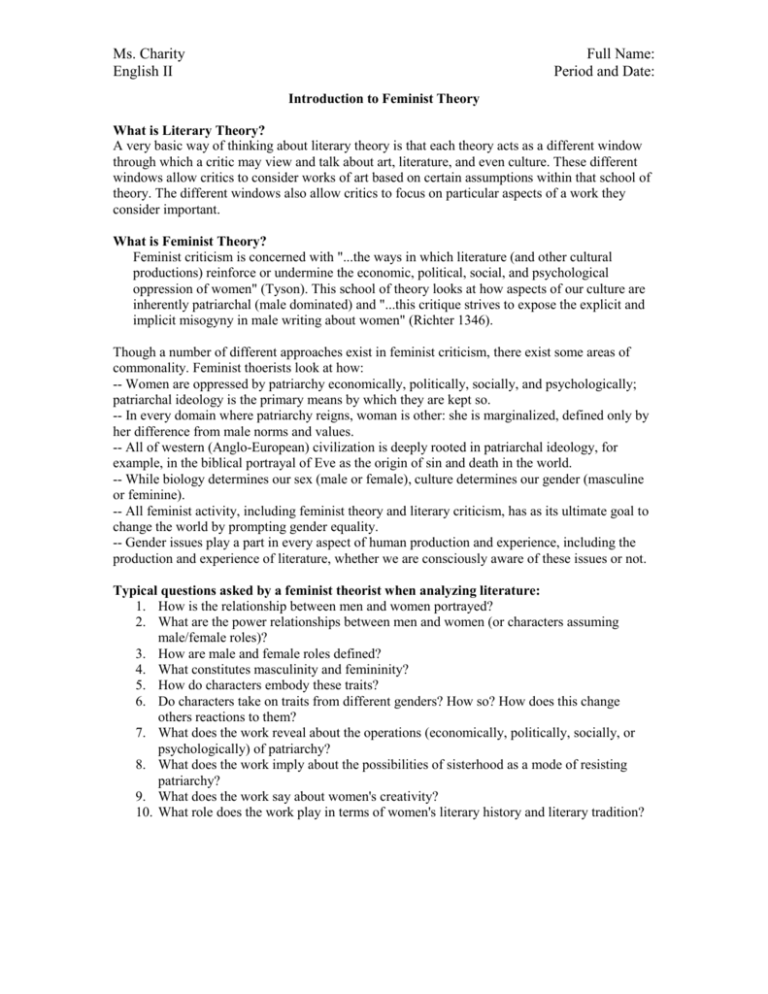
Ms. Charity English II Full Name: Period and Date: Introduction to Feminist Theory What is Literary Theory? A very basic way of thinking about literary theory is that each theory acts as a different window through which a critic may view and talk about art, literature, and even culture. These different windows allow critics to consider works of art based on certain assumptions within that school of theory. The different windows also allow critics to focus on particular aspects of a work they consider important. What is Feminist Theory? Feminist criticism is concerned with "...the ways in which literature (and other cultural productions) reinforce or undermine the economic, political, social, and psychological oppression of women" (Tyson). This school of theory looks at how aspects of our culture are inherently patriarchal (male dominated) and "...this critique strives to expose the explicit and implicit misogyny in male writing about women" (Richter 1346). Though a number of different approaches exist in feminist criticism, there exist some areas of commonality. Feminist thoerists look at how: -- Women are oppressed by patriarchy economically, politically, socially, and psychologically; patriarchal ideology is the primary means by which they are kept so. -- In every domain where patriarchy reigns, woman is other: she is marginalized, defined only by her difference from male norms and values. -- All of western (Anglo-European) civilization is deeply rooted in patriarchal ideology, for example, in the biblical portrayal of Eve as the origin of sin and death in the world. -- While biology determines our sex (male or female), culture determines our gender (masculine or feminine). -- All feminist activity, including feminist theory and literary criticism, has as its ultimate goal to change the world by prompting gender equality. -- Gender issues play a part in every aspect of human production and experience, including the production and experience of literature, whether we are consciously aware of these issues or not. Typical questions asked by a feminist theorist when analyzing literature: 1. How is the relationship between men and women portrayed? 2. What are the power relationships between men and women (or characters assuming male/female roles)? 3. How are male and female roles defined? 4. What constitutes masculinity and femininity? 5. How do characters embody these traits? 6. Do characters take on traits from different genders? How so? How does this change others reactions to them? 7. What does the work reveal about the operations (economically, politically, socially, or psychologically) of patriarchy? 8. What does the work imply about the possibilities of sisterhood as a mode of resisting patriarchy? 9. What does the work say about women's creativity? 10. What role does the work play in terms of women's literary history and literary tradition? Ms. Charity English II Full Name: Period and Date: Think about the following as you read Antigone. You will take notes that address the following after we finish each episode. 1. Examine traditional female stereotyping. Are the women in the text described as an angel, mad, temptress, witch, Jezebel, etc.? 2. Note general accusations about women. Try to find if the text accuses women of sentimentality, irrationality, conspiracy, passivity, etc. 3. Pay attention to abuses and disrespect. Does the text belittle women’s achievement? Does it mock and insult them? 4. Is there a deliberate omission of women altogether from the story where they actually should be? Remember that what is not included can be as important as what is included.

